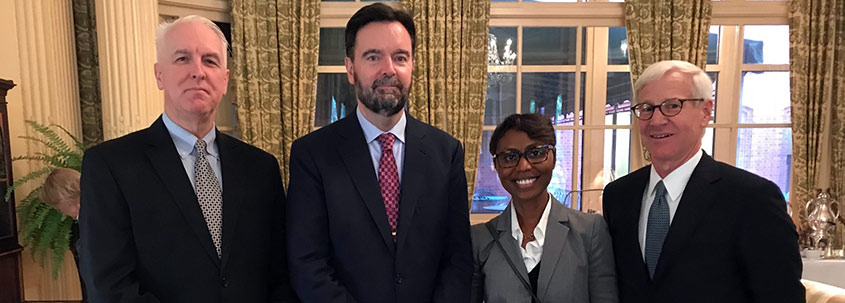IAP Attends US Patent Pro-Bono Advisory Council Board Reception
November 7, 2017
On October 18 the Inventor Assistance Program (IAP) attended the Patent Pro Bono Advisory Council Board Reception, in Washington D.C. to celebrate the 5th anniversary of the first US pro-bono program in the area of patents.

Mr. John Sandage, WIPO Deputy Director General, noted that “the IAP is seen by many –not only you in US—as the internationalization of the US Pro Bono program” and he added “this is not a coincidence, since it is true that in drawing the first lines of the IAP program, we learned from the US experience.”
About the IAP
The Inventor Assistance Program (IAP), a WIPO initiative in cooperation with the World Economic Forum, is the first global program of its kind. It matches developing country inventors and small businesses with limited financial means with patent attorneys, who provide pro bono legal assistance to secure patent protection.
First Pro-Bono Patent Program
The first pro-bono in the USA was introduced in 2012 following the adoption of the America Invents Act (AIA) in 2011.
The Federal Circuit Bar Association (FCBA) plays a key role in the implementation of the US program. The Association also became sponsor of the IAP and is now actively encouraging US pro-bono patent attorneys to join the IAP.